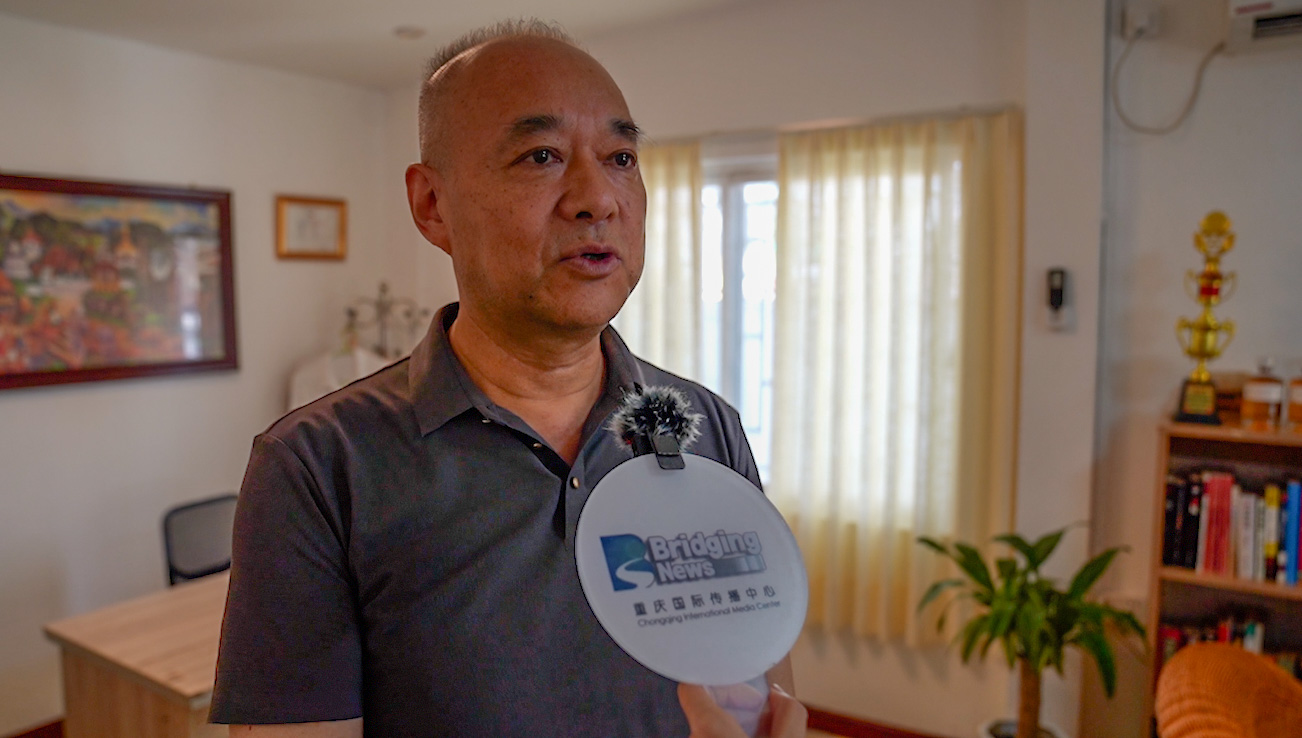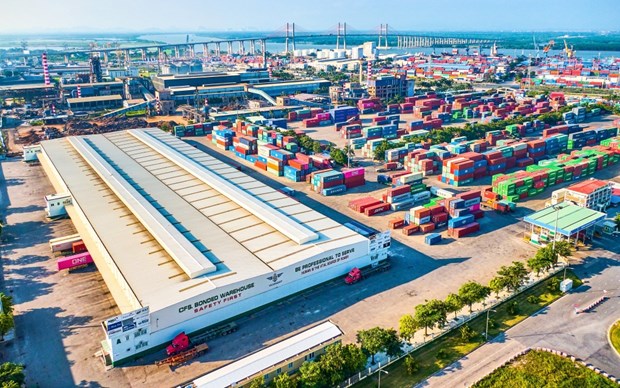 Bridging News
Bridging News
Chongqing Enterprises Bring Opportunities to Laos and Vietnam | Insights
Chongqing - Laos and Vietnam, both members of ASEAN, are neighboring countries with China. Under the framework of the "Belt and Road" initiative and the construction of the New International Land-Sea Trade Corridor (ILSTC), both countries have strengthened their economic ties with Chongqing, which brings back development opportunities. During our recent southbound visit, Bridging News found convincing stories in each country.
Introducing Professional Education to Laos
The Lao Cement Public Company, which has cement plants in Vangvieng, now changes its name to the Lao Cultural Tourism Public Company.
The investors' decision to shift from the cement industry to the tourism sector was a collective choice, aligning with the Lao government's intention to eliminate outdated industries and transform Vangvieng into a tourism hub. However, this transformation requires talent from various new fields.
Luckily, the Chinese investors of the company found a partner in Chongqing, China. Chongqing City Management College signed a strategic cooperation agreement with the Lao Cultural Tourism Public Company, committing to cultivating versatile talents who can adapt to the company's transformation and facilitate economic, trade, and cultural exchanges between China and Laos.
There are plans to establish a vocational college in Laos in collaboration with the local education administration, providing faculty, training, curriculum design, and teaching standards introduction.
"After conducting preliminary visits and research, we ultimately chose to collaborate with Chongqing City Management College due to Chongqing's pivotal role as a hub for the ILSTC and the school's advanced teaching equipment and environment," said Mr. Lv Lin, Deputy General Manager of the Lao Cultural Tourism Public Company.

Bridging News is interviewing Lv Lin, Deputy General Manager of the Lao Cultural Tourism Public Company. (Photo/Kenny Dong)
Lv also mentioned that the company has already submitted a list of 60 Lao student applications for study abroad to the college. The 60 students will be enrolled in the fields of tourism, logistics, and nursing while learning Chinese. After completing their studies, the company will directly or indirectly hire them.
With the opening of the China-Laos Railway, the economic and trade relations between Chongqing and Laos are further strengthening, which will drive the demand for versatile talents, particularly those with bilingual and professional skills. This aligns with the government's current encouragement of "going global with vocational education" for Chongqing's vocational college.

The library of Chongqing City Management College. (Photo/Chongqing City Management College)
Sun Yuzhong, Director of the International Cooperation and Exchange Center at Chongqing City Management College, stated that the cooperation with Laos aligns with the college's self-development. The college can also bring high-quality teaching experience to Laos and promote the development of vocational education in the region.
Apart from Laos, the college currently has extensive educational cooperation with countries along the Belt and Road, such as Pakistan, Cambodia, and Vietnam.
Benefiting Vietnam's Industrial Development
In Haiphong, Vietnam, one of Vietnam's major ports and a significant industrial city, a Chongqing-based factory has been established in the city's industrial park.
The China-Vietnam cross-border freight train in the blueprint will make Haiphong City a terminal, forming a rail-sea intermodal logistics channel. What attracted Paishing Technology, a Chongqing company specializing in printing and packaging, was Vietnam's policies for foreign investment, like four years of tax exemption along with nine years of 50% reduction on payable corporate income tax.

Haiphong is an industrial hub of Northern Vietnam. (Photo/vneconomy.vn)
"Furthermore, Vietnam's labor costs are relatively low, and the business environment is continuously improving; these are benefits in our consideration," said Derrick Wang, Vice President of Paishing Vietnam JSC.
Wang explained that approximately 40% of the company's raw materials are transported from Chongqing to Vietnam through the ILSTC rail-sea intermodal freight service. After production and processing at the Vietnam factory, the products are exported worldwide through the port of Haiphong.

iChongqing is interviewing Derrick Wang, VP of Paishing Vietnam. (Photo/Vivian Yan)
While benefiting from Vietnam's advantages, Paishing also benefits local development. Over 90% of the company's employees are Vietnamese, taking around 1,200 job positions in various roles, including basic operations and management. The company trains local Vietnamese employees in key technologies and provides them with catering and accommodation support.
Cassie, a local employee, expressed satisfaction with her experience working for a Chinese company, citing bilingual exposure, skill development, and competitive compensation compared to local companies.
"The cultures of China and Vietnam are quite similar, with similar holidays and work-life habits. The employees from both countries work together harmoniously," she said.
 Related Stories
Related Stories